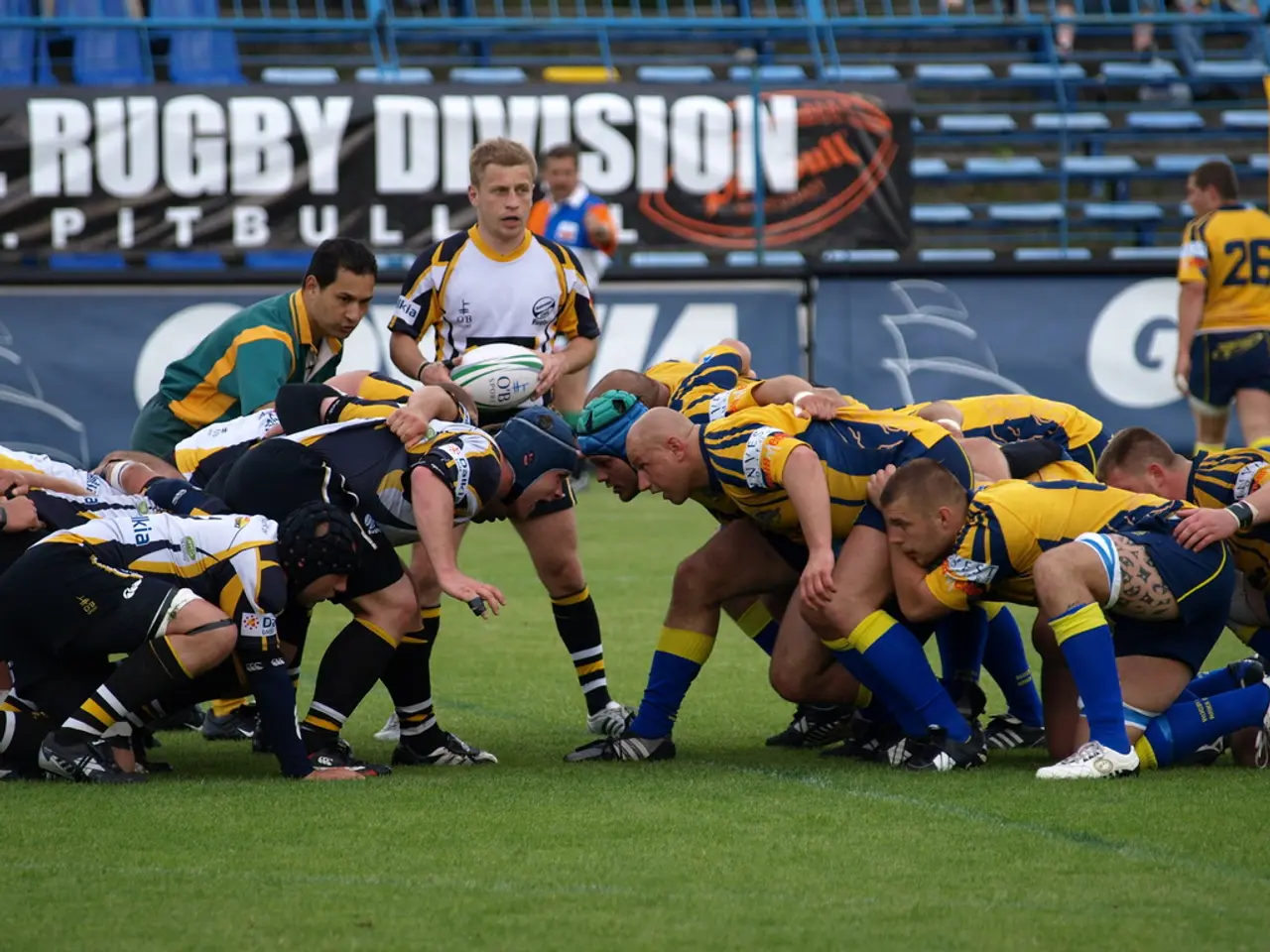Rugby League Serving as a Stepping Stone for Socio-economic Advancement among At-risk Youth
In the realm of sports, Rugby League stands out as a powerful tool for fostering social mobility and personal growth among disadvantaged youth. This vibrant sport offers more than just a game; it provides a foundation for life skills, community connections, and career development.
Physical fitness is a cornerstone of success in sports, and Rugby League is no exception. By encouraging healthier lifestyles among young people, the sport plays a significant role in shaping potential futures. Participation in rugby can significantly enhance physical fitness among disadvantaged youth, setting the stage for a healthier, more active lifestyle.
Encouraging participation, investing in local clubs, and ensuring resources are available can transform lives. Professional and community rugby league organizations often give youth in disadvantaged areas access to coaching, fitness training, and mentoring that they might not otherwise receive. Such engagement can build social capital and open doors to scholarships, education, and careers within and beyond sport.
Rugby League serves as a foundation for personal growth and community connection. The rich tapestry of experiences within the sport can illuminate pathways for many. Mentorship is a vital aspect of youth empowerment within this environment, providing guidance and support to young players, particularly disadvantaged youth. Mentors often engage with their communities to give back, hosting workshops or training sessions.
Mentorship in Rugby League can lead to a greater sense of belonging among young athletes. Youth involved in team sports often find a sense of belonging, which is crucial for social mobility. Building resilience occurs through the challenges presented in competitive sport, teaching young players to accept and learn from mistakes.
Opportunities arise through teamwork and discipline, which can profoundly impact young lives. Coaches and experienced players act as role models, sharing their knowledge and experiences. Coaching provides a chance to educate future generations of athletes and foster community engagement.
Rugby League offers numerous career opportunities for disadvantaged youth, extending beyond playing on the field. Sports management is another avenue for those with an interest in business. Effective mentorship can greatly impact personal and professional development, and mentorship and guidance from coaches not only enhance athletic talent but also encourage resilience and ambition.
Every effort counts in shaping potential futures through rugby programs for disadvantaged youth. Communities benefit tremendously when we invest in programs aimed at developing talent. It's essential to rally collective efforts towards promoting these initiatives. Support from local clubs and organizations is vital for sports development initiatives.
In summary, Rugby League advances social mobility for disadvantaged youth through skill development, inclusive community environments, structured talent pathways, and mentorship, which collectively improve their personal and professional trajectories. Community engagement often flourishes around sports programs, and teamwork plays a crucial role in achieving individual and group goals in rugby. Rugby League stands as a powerful tool for fostering social mobility for disadvantaged youth.
Funding educational resources and self-development programs can further cement the impact of Rugby League on disadvantaged youth. By providing academic support and personal development opportunities, more doors can open for young athletes, allowing them to excel in both sports and academics.
Furthermore, an appreciation for various aspects of education and self-development can empower disadvantaged youth to pursue careers beyond sports, especially in fields like sports management or coaching, where they can leverage their rugby experiences to make significant contributions.




